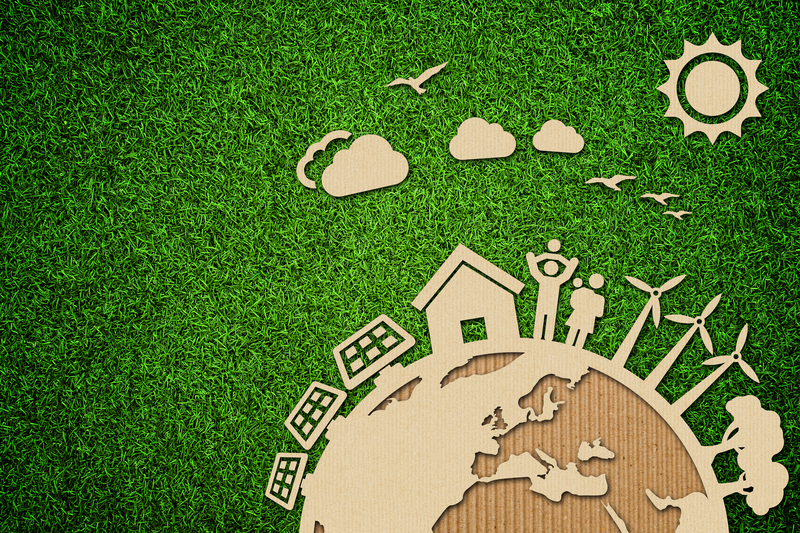Creative Ways to Responsibly Dispose of PPE Waste in Your Community
The COVID-19 pandemic has led to a massive increase in the use of personal protective equipment (PPE) such as masks, gloves, and face shields. While these tools are vital for safeguarding public health, they have also created significant environmental challenges due to improper disposal. PPE waste is a new source of pollution, often ending up in landfills, waterways, or littering public spaces. To combat this, it's important to seek innovative and responsible ways to dispose of PPE waste in your community.
In this comprehensive and SEO-optimized guide, we'll explore a range of creative, effective, and sustainable methods for managing PPE waste responsibly. Our tips are designed to help both individuals and communities play a part in protecting both human health and the environment.
Understanding PPE Waste
Before discussing creative disposal strategies, it's crucial to understand what constitutes PPE waste. Personal protective equipment includes:
- Single-use face masks (surgical masks)
- N95 respirators and other protective masks
- Disposable gloves (latex, nitrile, vinyl)
- Face shields and protective goggles
- Protective gowns and aprons

The Environmental Impact of Improper PPE Waste Disposal
Improper disposal of PPE can have several negative consequences:
- Pollution: PPE litter adds to overall plastic pollution in the environment.
- Harm to Wildlife: Animals can ingest or become entangled in discarded PPE.
- Disease Transmission: Infected PPE poses a risk to sanitation workers and scavengers.
Creative Ways to Responsibly Dispose of PPE Waste in Your Community
1. Community PPE Waste Collection Drives
Organize regular PPE waste collection days in partnership with local health authorities or environmental groups. Encourage residents to deposit used masks, gloves, and other PPE at designated drop-off points.
- *Appoint volunteers to oversee safe collection and segregation.*
- *Provide clear signage explaining what PPE items are accepted.*
- *Arrange for sealable bins or bags to reduce exposure to contaminants.*
Such drives foster community spirit and ensure PPE waste is turned over to specialized facilities, preventing environmental contamination.
2. PPE Waste Donation for Specialized Recycling
Many innovative companies now accept PPE waste for recycling. Set up community-wide collection boxes and partner with these organizations. Some ideas include:
- Contact Terracycle or Similar Programs: These organizations recycle PPE into new materials such as park benches or construction blocks.
- School and Office Campaigns: Educate staff and students about PPE recycling and participate collectively.
3. Upcycling and Creative Reuse of PPE Waste
While not all PPE can be safely reused, certain types, especially clean or unused masks and face shields, can be upcycled. Ideas include:
- Art Installations: Artists have begun using sanitized PPE to create sculptures or awareness displays, highlighting the pandemic's environmental impact.
- Educational Projects: Use decontaminated PPE components in science or art classes to teach about pollution and recycling.
4. Establishing PPE Disposal Stations
Work with property owners and local councils to set up PPE-specific disposal stations in strategic locations (e.g., outside grocery stores, hospitals, offices, and schools). Features of effective stations include:
- *Clear, bold labeling for PPE waste only*
- *Lockable or covered bins to prevent animals from accessing discarded items*
- *Regular emptying and maintenance*
5. Raising Awareness Through Community Campaigns
Knowledge is power. Launch campaigns to inform your community about the importance of responsible PPE waste management. Examples include:
- Posters and Flyers: Distribute infographics explaining proper mask and glove disposal.
- Workshops and Webinars: Host sessions on safely handling and discarding PPE.
- Social Media Challenges: Encourage residents to share photos or stories about PPE waste action and tag local organizations.
6. Composting Biodegradable PPE
Some PPE options, like certain brands of biodegradable masks and gloves, are designed for composting. If your community uses these products:
- *Set up dedicated compost bins for certified compostable PPE (do not mix with food waste if contaminated).*
- *Educate on proper product selection by checking eco-certifications.*
7. Collaborate with Local Healthcare and Sanitation Providers
Hospitals, clinics, and cleaning companies follow strict protocols for PPE waste disposal. Partner with these organizations to learn about:
- *Safe PPE collection and containment strategies*
- *Disinfection methods (UV treatment, incineration, and autoclaving)*
- *Jointly funded community incinerators for non-recyclable PPE*
8. Encouraging Zero-Waste and Reusable Alternatives
The ultimate solution is reducing single-use PPE demand by promoting reusable masks and shields where appropriate:
- *Distribute reusable fabric masks to those in need.
- *Host workshops on proper cleaning and care of reusable PPE.
- *Encourage businesses to provide safe communal PPE solutions (e.g., washable uniforms, shields).*
How to Safely Handle and Store PPE Waste
Safety comes first when dealing with potentially contaminated PPE waste. Here's a step-by-step guide:
- Remove PPE Carefully: Avoid touching the outside of used masks or gloves. Turn gloves inside out and use ear loops for masks.
- Seal in a Separate Bag: Place waste in a small, leak-proof plastic bag. Tie it securely before placing it in a disposal bin.
- Label Bins Clearly: Use prominent labels, such as "PPE Waste Only".
- Wash Hands Immediately: Use soap and water, or hand sanitizer after handling PPE.
- Keep Out of Reach of Children and Animals: Store sealed bags or bins in safe locations until waste is removed.
Community Case Studies: Innovative PPE Waste Management Worldwide
Case Study 1: "The Mask Recycle Project," Taiwan
Taipei's environmental bureau launched dedicated PPE recycling bins in high-traffic areas. Used masks are collected, sanitized, and shredded to create new plastic products, demonstrating how urban centers can integrate innovative PPE recycling into daily life.
Case Study 2: Art for Awareness, United Kingdom
In London, local artists teamed up with waste contractors to turn sanitized PPE waste into compelling art installations. These showcased both the pandemic's toll and creative solutions for reusing PPE materials.
Case Study 3: Community Drive in India
Several Indian cities began community PPE collection drives where residents could drop used masks and gloves at secure street kiosks. The waste was then transported to high-heat incinerators, ensuring safe and responsible disposal.
Overcoming Challenges in PPE Waste Disposal
While every community's resources and regulations differ, certain challenges are universal:
- Lack of Awareness: Many are still unaware of the risks posed by discarded PPE.
- Limited Recycling Infrastructure: Not all recycling centers accept PPE waste; contamination is a significant barrier.
- Cost: Specialized handling and transport require funding and trained staff.
Best Practices for Effective PPE Waste Management
- Promote the use of reusable PPE whenever possible, while ensuring safety and hygiene guidelines are followed.
- Set up dedicated bins for PPE waste in public spaces and private buildings.
- Educate your community continuously via local news, social media, and community leaders.
- Partner with recycling innovators and support research into sustainable PPE materials.
- Monitor and report illegal dumping of PPE waste to local authorities for swift action.

The Role of Policy and Advocacy in PPE Waste Management
Local governments play a pivotal role in safe PPE waste disposal. Advocate for:
- Mandatory PPE recycling programs and waste segregation in public institutions.
- Investment in compostable PPE technology and awareness campaigns.
- Support for research into reusable, sustainable protective equipment.
Conclusion: Make PPE Waste Disposal a Community Responsibility
Responding creatively and responsibly to the challenge of PPE waste is a vital part of building a resilient and eco-friendly community. By embracing these innovative PPE disposal strategies, educating others, and partnering with local organizations, you can make a positive difference--protecting people and the planet.
*Remember: Every mask or glove disposed of responsibly is a step toward a cleaner, healthier future for your community. Let's work together to turn the tide on PPE pollution--starting today!*
Related Keywords and Variations
- responsible PPE waste disposal
- PPE recycling solutions
- dispose of protective masks safely
- PPE upcycling and creative reuse
- community PPE waste collection
- eco-friendly PPE disposal
- PPE litter prevention
- sustainable PPE waste management